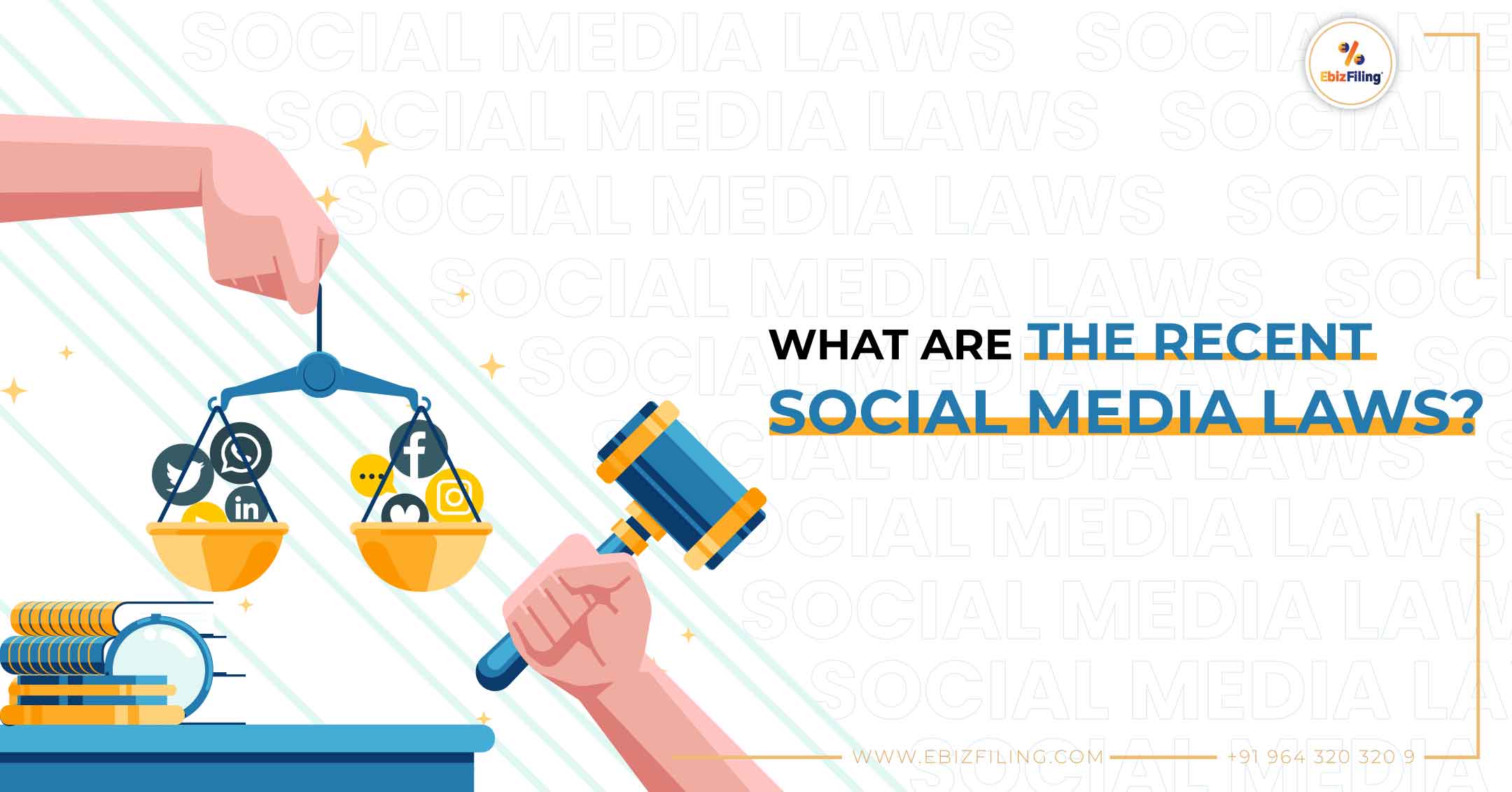
-
July 15, 2025
Social media laws and recent implications
Introduction
Social media has become an integral part of our lives. With the rise in social media platforms, there has been a significant increase in the number of people who use them. In India, social media is widely used for communication, sharing of information, and networking. However, the rise in social media has also brought about new challenges related to online safety, security, and privacy. To address these challenges, the Indian government has introduced several laws and regulations related to social media. This blog will discuss the recent implications in social media laws in India.
Section 79 of the Information Technology Act
- Section 79 of the Information Technology Act (ITA) provides legal protection to social media platforms and other intermediaries from liability for user-generated content.
- In 2018, the Indian government amended this section to make social media platforms more accountable for the content that is posted on their platforms.
- The amended section requires social media platforms to take down any content that is deemed unlawful within 24 hours of receiving a complaint. This has been done to curb the spread of fake news and hate speech on social media platforms.
The new rules for social media intermediaries
In February 2021, the Indian government introduced new rules and regulations related to social media intermediaries.
- These rules require social media platforms to appoint a grievance officer who will be responsible for addressing complaints related to unlawful content.
- The rules also require social media platforms to set up a mechanism for verifying the identity of their users.
- Social media platforms are also required to have a mechanism for removing content that is deemed unlawful.
- The new rules also require social media platforms to provide information related to the origin of messages that are deemed unlawful.
Recent Implications in Social Media Laws
The new rules for social media intermediaries have significant implications in social media lawsfor the companies operating in India. The rules require social media platforms to comply with Indian laws related to online content, which may differ from the laws in other countries. Social media platforms may also face legal action if they fail to comply with the new rules. The new rules have been criticized by some social media companies and civil rights groups for being too broad and vague. Some have also raised concerns about the impact of the rules on free speech and privacy.
The recent Twitter controversy
In February 2021, Twitter found itself in a controversy with the Indian government over the new rules and regulations related to social media. The Indian government had asked Twitter to take down several tweets related to the ongoing farmers’ protest in India. Twitter initially refused to comply with the government’s request, stating that it did not believe the tweets violated its policies. However, the Indian government accused Twitter of violating Indian laws and threatened legal action. Twitter eventually complied with the government’s request and removed the tweets.
The controversy sparked a debate about the role of social media companies in regulating content writing services online. Some argued that social media companies should be more transparent about their content policies, while others argued that governments should not have the power to regulate online speech.
Conclusion
The rise in social media has brought about new challenges related to online safety, security, and privacy. To address these challenges, the Indian government has introduced several laws and regulations related to social media. The new rules for social media intermediaries have significant implications in social media laws and rights for social media influencers and companies operating in India. While the rules have been criticized by some for being too broad and vague, others argue that they are necessary to ensure that social media platforms comply with Indian laws related to online content. The recent Twitter controversy has highlighted the need for a better understanding of the role of social media companies in regulating online speech. It is essential to strike a balance between protecting free speech and ensuring that online content does not incite violence or harm.
Apply For Your Copyright
Copyright your literary, artistic work on your social media platforms with ebizfiling.com.
About Ebizfiling -










Reviews
arti ittannavr
18 Apr 2022Took trademark registration from Ebizfiling india private limited service was excellent thank you 😊
Hetal Verma
27 Jan 2018Great work done by the Ebizfiling team. Good luck for the future.
Mihir Gala
29 Oct 2017I have had a great experience working with them.
February 4, 2026 By Dhruvi D
February 3, 2026 By Dhruvi D
Union Budget 2026–27 Updates: What the New Changes Mean for Businesses Introduction Finance Minister Nirmala Sitharaman presented the Union Budget 2026–27 on 1st February 2026. Instead of big tax shocks, this year’s Budget focused on making tax laws simpler, reducing […]
January 31, 2026 By Dhruvi D
Filing Requirements Across Multiple States Explained Clearly Introduction As businesses grow, selling or operating beyond one state often feels like progress. But with that growth comes a new layer of compliance that many business owners underestimate. Filing requirements across multiple […]